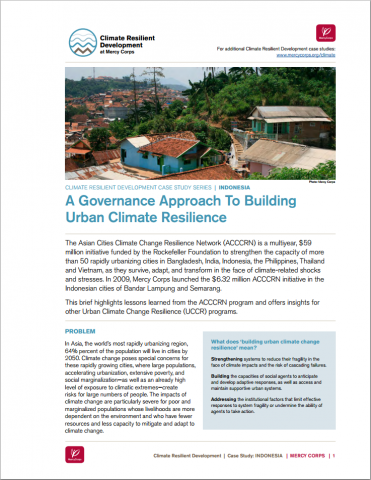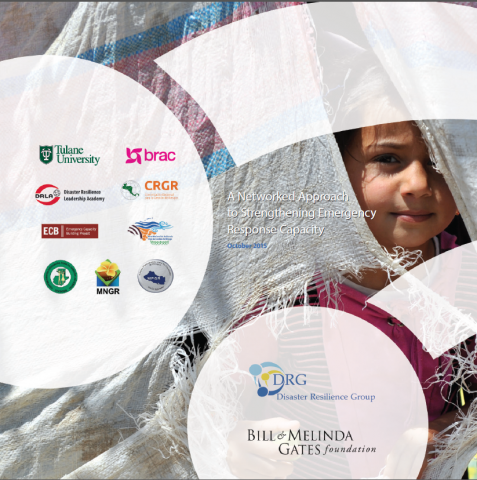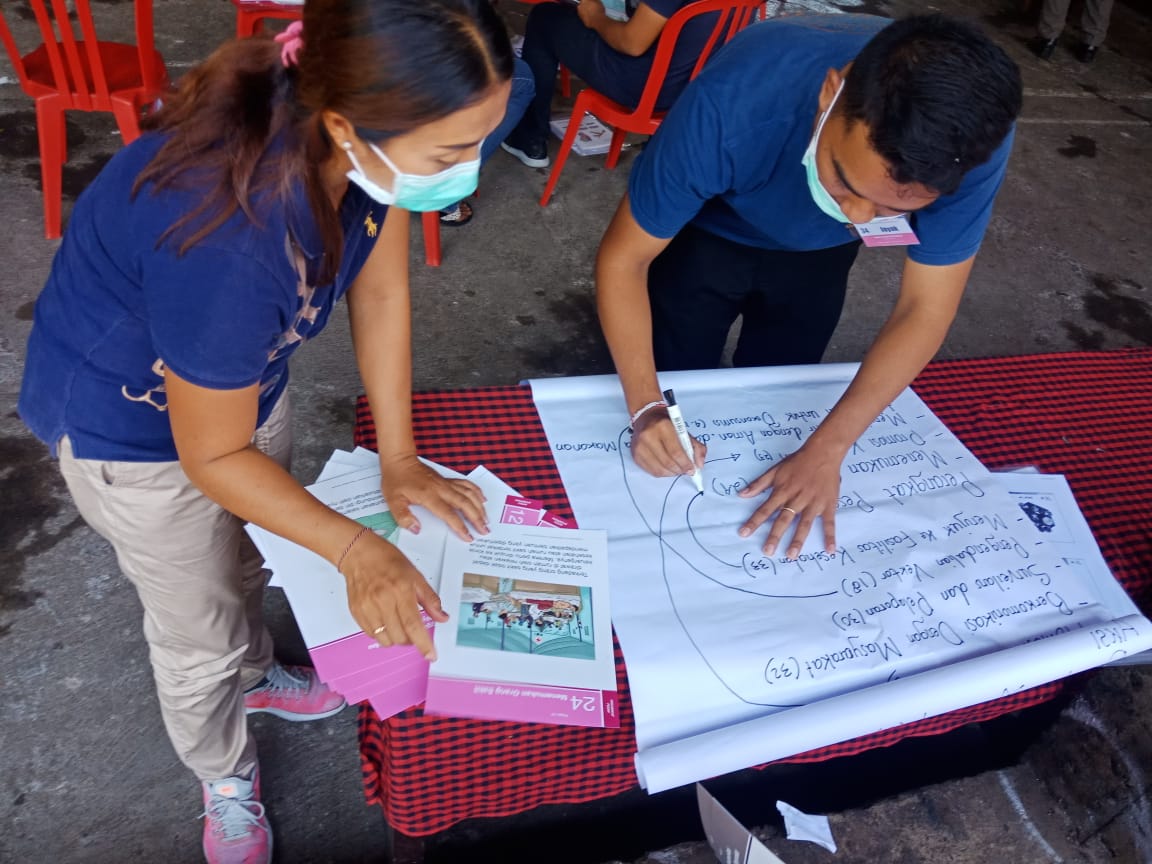A governance Approach to Building Urban Climate Resilience


This brief highlights lessons learned from the Asian Cities Climate Change Resilience Network (ACCCRN) and offers insights for other Urban Climate Change Resilience (UCCR) programs.
This series of case studies are aimed to discover the key lessons and best practices for integrating climate change into diverse programs and contexts.
They are intended to inform how CRD is designed and implemented in Mercy Corps, and share this knowledge to other practitioners and implementation for other agencies grappling with these questions.
A governance Approach to Building Urban Climate Resilience
https://www.mercycorps.org/sites/default/files/Mercy_Corps_climate_resilient_development_case_studies_Indonesia.pdf


